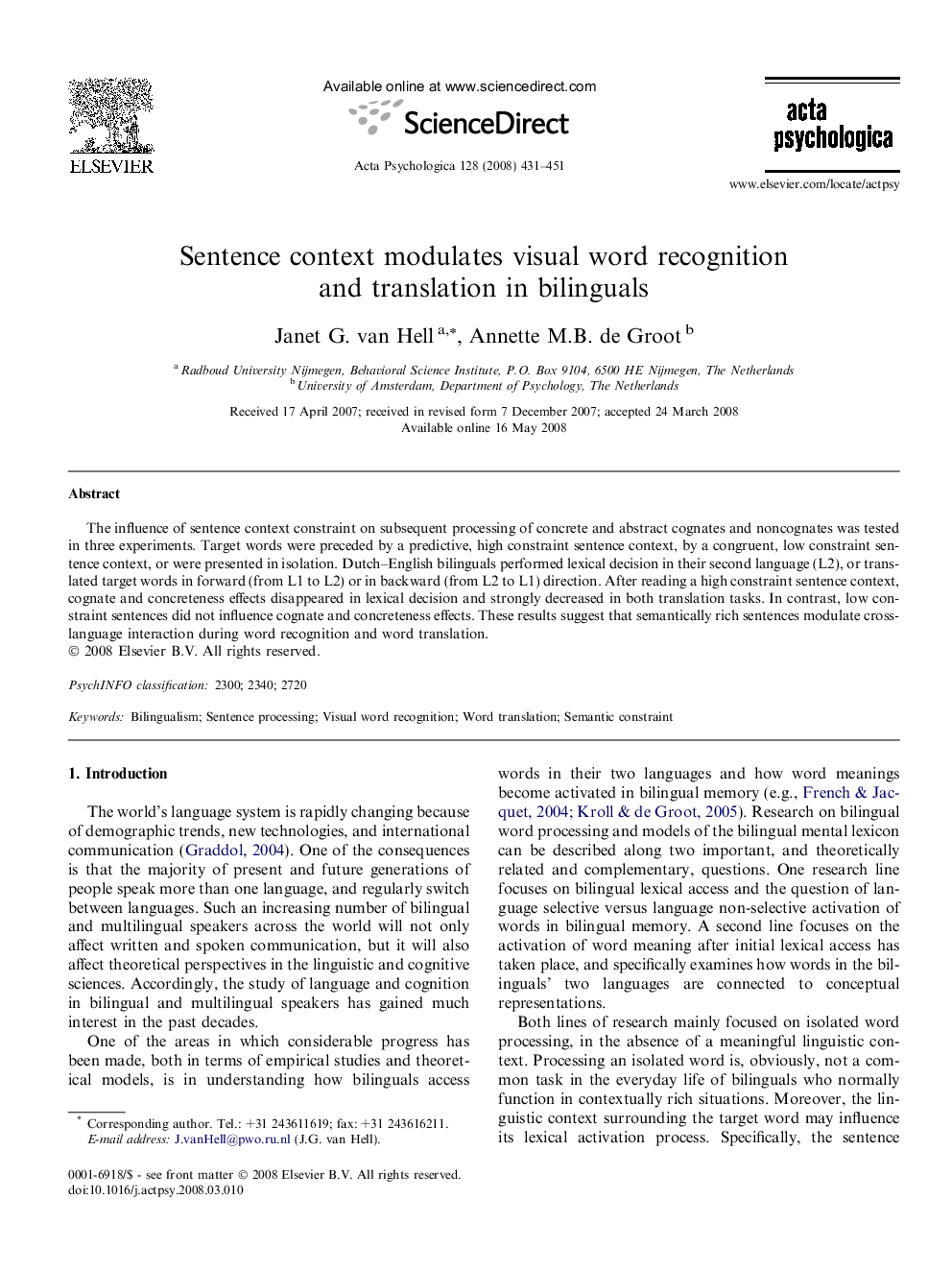| Article ID | Journal | Published Year | Pages | File Type |
|---|---|---|---|---|
| 920577 | Acta Psychologica | 2008 | 21 Pages |
The influence of sentence context constraint on subsequent processing of concrete and abstract cognates and noncognates was tested in three experiments. Target words were preceded by a predictive, high constraint sentence context, by a congruent, low constraint sentence context, or were presented in isolation. Dutch–English bilinguals performed lexical decision in their second language (L2), or translated target words in forward (from L1 to L2) or in backward (from L2 to L1) direction. After reading a high constraint sentence context, cognate and concreteness effects disappeared in lexical decision and strongly decreased in both translation tasks. In contrast, low constraint sentences did not influence cognate and concreteness effects. These results suggest that semantically rich sentences modulate cross-language interaction during word recognition and word translation.
